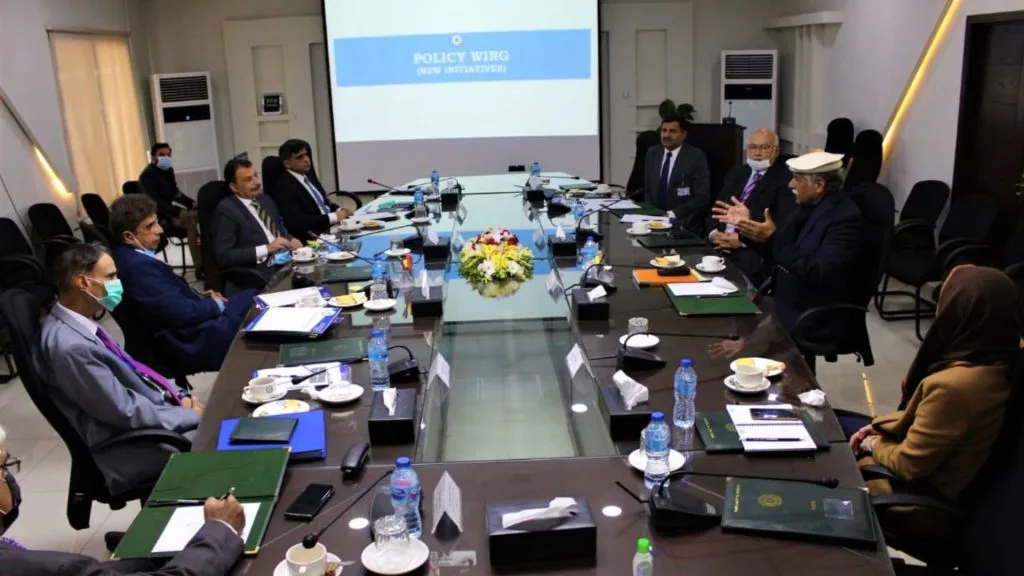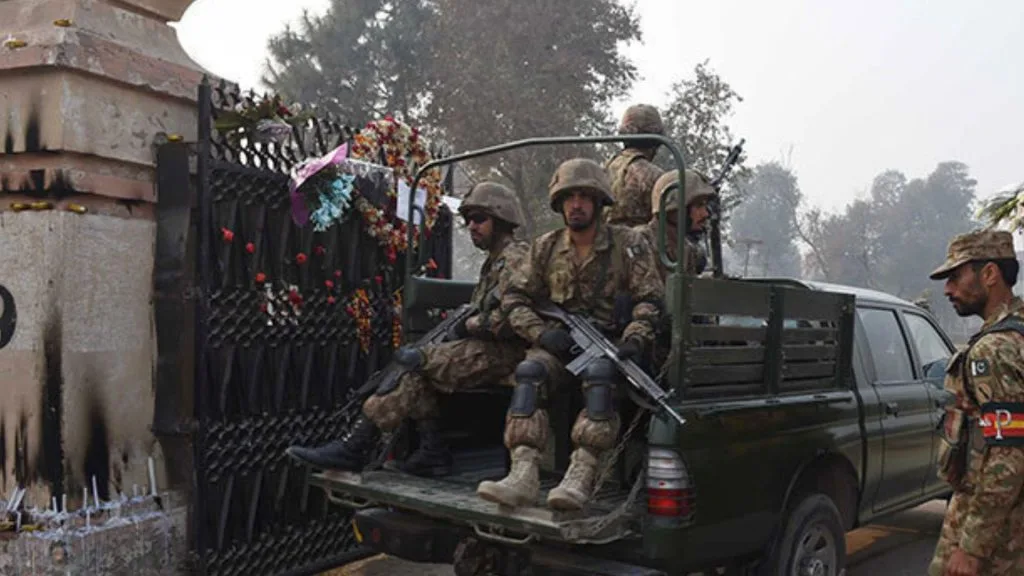
The National Counter Terrorism Authority (NACTA) comes under the spotlight every time there is a terrorist incident. However, it seems it is still not widely understood that NACTA is supposed to be tasked solely with developing and executing a comprehensive strategy to combat terrorism, which includes coordinating intelligence sharing among agencies and creating policies to curb violent extremism and terrorism financing. Simply put, it is a body that formulates policy, reviews strategy and facilitates intelligence-sharing — nothing more.
Our second fallacy is that we fail to understand that the principal responsibility for action against terrorism falls squarely on law enforcement agencies, especially the Counterterrorism Department (CTD). The civil armed forces and then the military only step in for assistance if everything else falls. Till then, taking action remains the police’s responsibility.
Unfortunately, in practice, the response to terrorism-related incidents has for long unfolded very differently. The armed forces and premier intelligence agencies often take the lead, while the CTD and police seem to play only secondary roles. Since the tactical and operational roles supposed to be played respectively by the police and other security forces overlap, the police are often sidelined or forced to cede their space to other security entities.
It baffles me why we cannot grasp this modest concept: the police should remain at the forefront of the official response to terrorism, with NACTA playing a supporting role in intelligence sharing. If the police’s performance leaves something to be desired, the logical solution is to enhance its capabilities, provide more resources and try to emulate prevailing best practices — not reinvent the wheel. Deviating from this framework is not only impractical, but it has also led to ineffective outcomes, as evidenced by the state’s recent failings with respect to emergent security issues. It is curious that we still opt for complexity over simplicity and relish the convoluted rather than embrace the straightforward.
In this context, the recent calls to restructure NACTA are uncalled for, more so since they seem symptomatic of a temptation to bypass sustained, incremental improvement. The evolution of existing systems should be a pivotal goal, but it is often overlooked in favor of shiny flagship projects. Take, for instance, this new tendency to prioritize new ‘facilitation centers’ over adequately funding existing police stations. It illustrates a paradoxical approach to reform, as it advocates the creation of parallel institutions over improving existing ones. Conceptually and operationally, such strategies indicate a preference for superficial rather than substantive changes.

NACTA, established in 2008 with the purpose of tackling terrorism, has faced many obstacles, including legislative delays. The NACTA Act was only passed in 2013, and its leadership remained unstable, with thirteen heads changed since 2008 and the authority often running as a headless department. This rapid turnover not only undermined policy continuity but also impeded its strategic implementation.
Also Read: Military Courts: Upholding Justice in Anti-Terrorism
NACTA held its first Board of Governors (BOG) meeting in 2018 — nearly 11 years after it was formed. While many operational challenges were raised at the time, the authority was seriously considered for closure over issues such as turf politics, a lack of resources and clear direction, and subpar presentations by the then NC. The NACTA Act has been amended since then to address some structural issues, including placing the BOG under the Ministry of Interior and expanding the Executive Committee. These changes have led to more regular BOG and executive committee meetings under the current NC, signaling a potential turnaround in functioning.
However, the question of whether NACTA should be led by the prime minister or the Interior Ministry has remained a matter of some contention, which is illustrative of the agency’s unclear authority structure and the jurisdictional disputes it faces. It is incomprehensible that the Joint Intelligence Directorate would be shut down on whims after its operation was just about to start. And, though staffing issues have been partially addressed, with over 400 skilled officers now at NACTA’s disposal, it continues to operate below capacity and faces challenges in staff compensation, with salaries the lowest among police departments since 2015. NACTA’s primary challenge remains the reluctance of different organizations to share information. Each wants to claim credit for any success, which often leads to critical insights being withheld.
Despite all this, NACTA should never become another national Counterterrorism Department (CTD) focusing on direct action, such as arrests, raids, and prosecutions. Such a shift would erode its effectiveness and undermine the mission of intelligence gathering and tackling terrorism’s root causes. The resurgence of terrorism, especially following the Afghan Taliban’s ascension in 2021, underscores the extensive and diverse nature of the threats faced by Pakistan. A militarized approach, while sometimes necessary, falls short in urban settings, where robust civilian law enforcement is crucial.
The National Action Plan (NAP), reviewed in 2021, signaled a commitment to addressing these challenges, yet reform of the criminal justice system has lagged behind. Effective counterterrorism requires more than just NACTA’s coordination: it demands adequate resources for civilian law enforcement and stringent implementation of the NAP. NACTA underperforms not because it lacks new initiatives, but because its foundational challenges have never fully been addressed. Restructuring such an organization without at least pushing it to its full potential first, therefore, seems unjust and premature. It is nonetheless essential to enhance NACTA and counterterrorism units’ effectiveness through rigorous professional accountability.
This article is for informational purposes only. Find the original publication here.



















Leave a Reply